How supermarkets work: tricks that make you buy
Categories: Economy | Life hacks
By Pictolic https://pictolic.com/article/how-supermarkets-work-tricks-that-make-you-buy.htmlYou've probably all heard the expression "a clever marketing ploy". But what does it mean in relation to supermarkets and other large stores that we go to almost every day? Supermarkets and chain stores have really learned to control the minds of their consumers. How? You'll find out now.
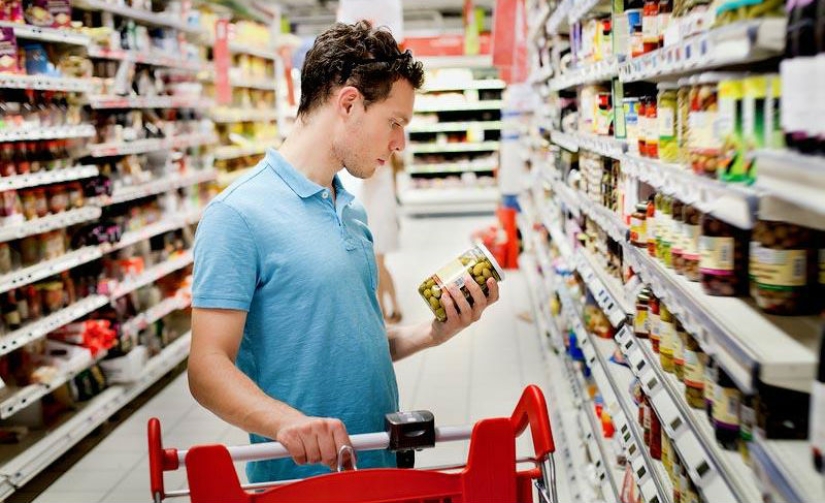
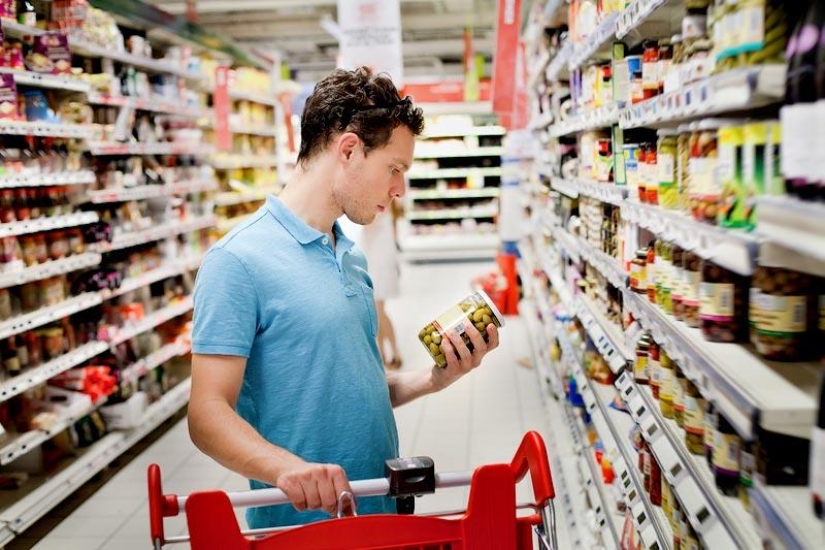
They make you associate red with discounts.
Often supermarkets are already covered with advertising on the outside, where you can see discounts highlighted in color. In our minds, the red price tag has long been associated with a price reduction. However, you should be careful: not always such colored price tags mean more profitable purchases: the price may be reduced slightly or even sometimes remain unchanged at all. But at the same time, the consumer is still willing to buy goods with such price tags because of the already established association.
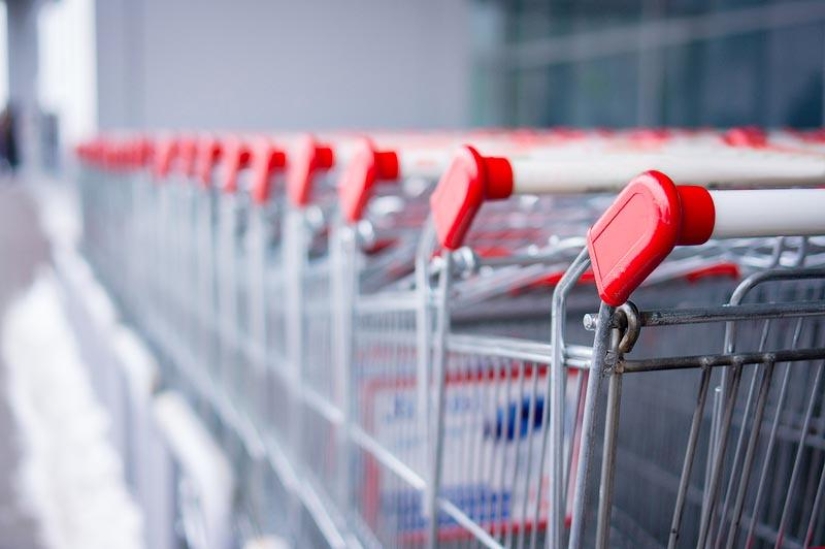
They make the carts too big.
Shopping carts were invented in 1938. At the same time, the area of an ordinary cart has doubled over the past 40 years. And almost always they are much larger than the" consumer basket " of the average family. If we are carrying a half-empty cart, then purely at the subconscious level we have a desire to fill it. As a result, you buy more food than you need. Therefore, if you want to run into the store for a short time, it is better to take a basket. This way you will kill two birds with one stone: you will save money, and the shopping bag will be easier.
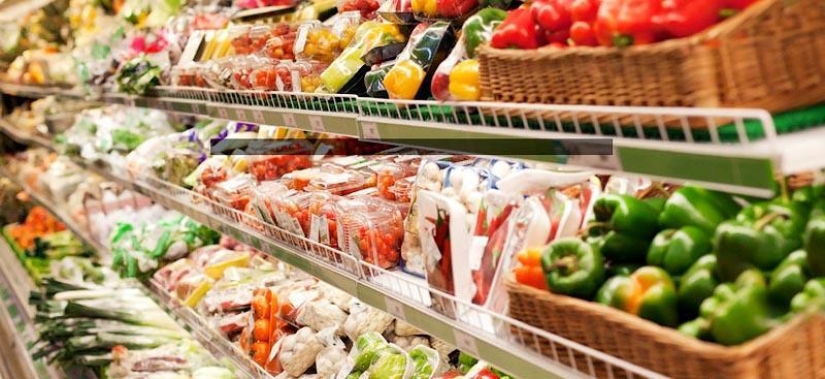
Fruits and vegetables are usually found at the entrance to the store.
The researchers tested the willpower of buyers. It turned out that it was enough to give a person the opportunity to first do what, in his opinion, is "good", so that later he himself began to actively go beyond his own limits. That is why supermarket owners lay out healthy fruits and vegetables right at the entrance: the more money the buyer spends on healthy products, the more he will buy harmful products such as beer and chips.
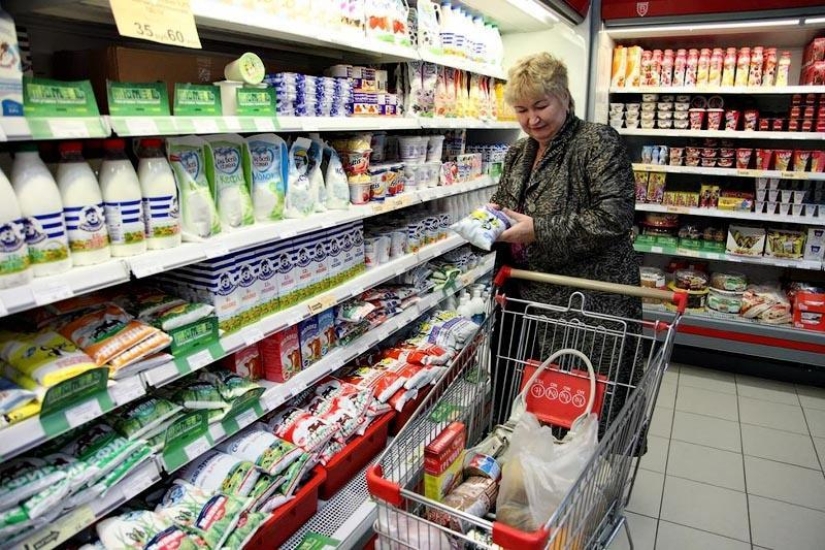
They hide dairy products in the back of the store.
Sales professionals use a lot of tricks to get us to buy more. Years of research have developed tricks that are used everywhere and that we don't even know about. To illustrate more clearly, let's think about why milk — the product that is in the greatest demand-is always at the farthest end of the supermarket? And it's not that there are refrigerators there, but that they want you to first pass by other products in search of milk.
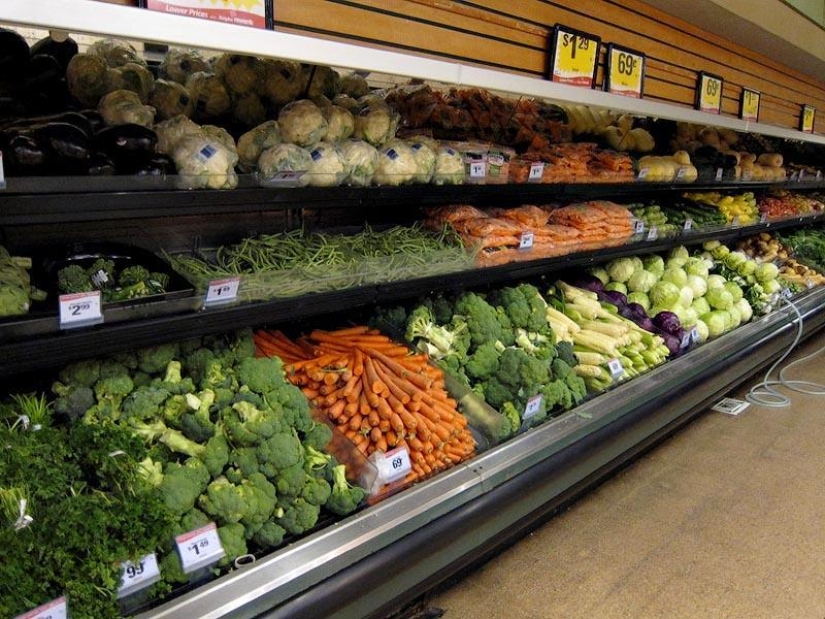
They create the illusion that their fruits and vegetables are fresh.
In most supermarkets, vegetables and fruits in the vegetable department are washed and polished to a shine. Moreover, they are often sprayed with water, despite the fact that this way they will rot faster. Why? Yes, because people like everything fresh, and in the brain this is associated with a shiny, moist surface. In addition, certain substances are specially used in supermarkets to maintain the appetizing appearance and color of fresh fruits and vegetables. In fact, the "fresh" fruits and vegetables that you buy in the supermarket could have been in stock for a month before, after which they will lie in your refrigerator for a couple of days before they are eaten.

They try to attract you with flowers.
As soon as you enter the supermarket, the smell of flowers and colorful fruits in the vegetable department delights your senses. This automatically provokes the release of the pleasure hormone dopamine, and you are in a pleasant anticipation of shopping. From here to the purchase is not even a step, but half a step. The Council. Sniff and enjoy, but remember what you really need to buy. Pull out your shopping list and re-read it again.
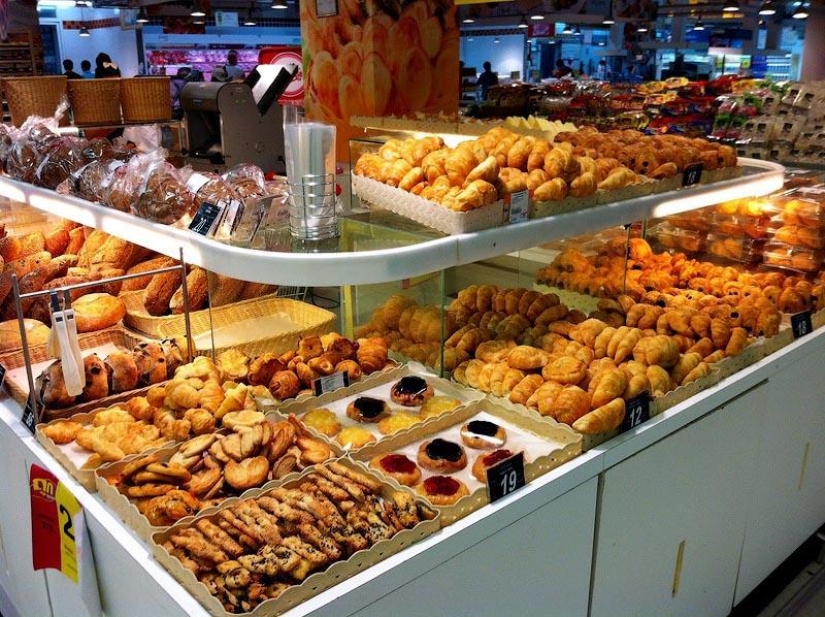
They make you feel hungry.
In many supermarkets, confectionery products are located at the entrance. The smell of fresh pastries activates the salivary glands, and you want to immediately buy this yummy. In addition, some supermarkets set up small counters, offering customers to taste a particular product. It is always surprising that the number of people who buy a product only because they feel obligated or hungry. Remember, you don't owe anyone anything, and to avoid a "hungry" purchase, it's better to have a snack before going to the store.
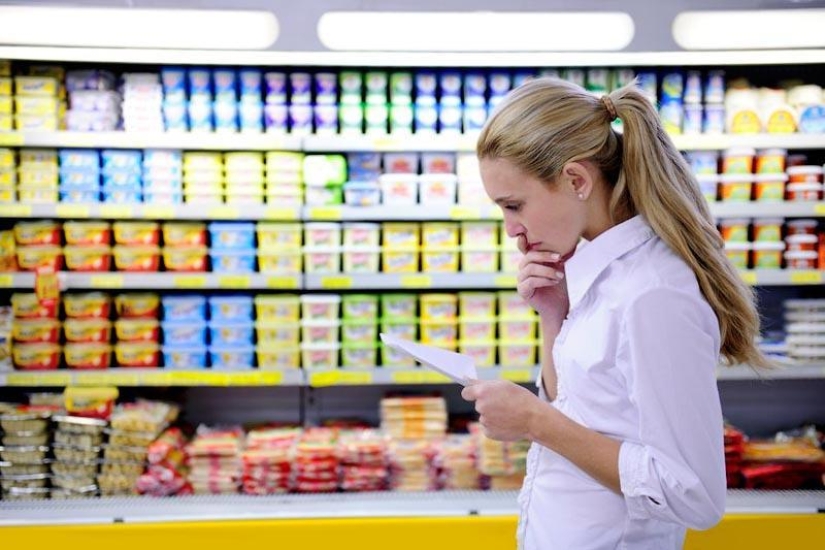
They make you go everywhere.
Such necessary products as bread, milk and eggs are scattered throughout the store, so that you can walk around it longer, making spontaneous thoughtless purchases on the way. You are sure that you choose your own route through the supermarket. In fact, experts in their field have specially thought everything out so that you will meet more temptations on the way to your cherished goal. Therefore, shelves with dairy products are never located at the entrance, otherwise you could cope too quickly and leave without two dozen necessary little things.
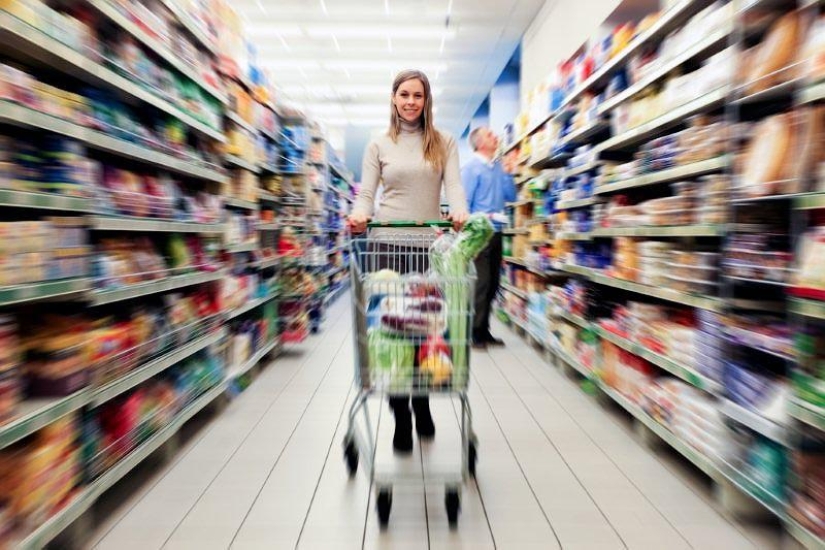
They make you think that you are going fast, when in fact it is not.
They lay out the floor with small tiles in more expensive departments, so that your cart rattles louder. So you think that you are going faster, so you subconsciously slow down and spend more time in an expensive department.
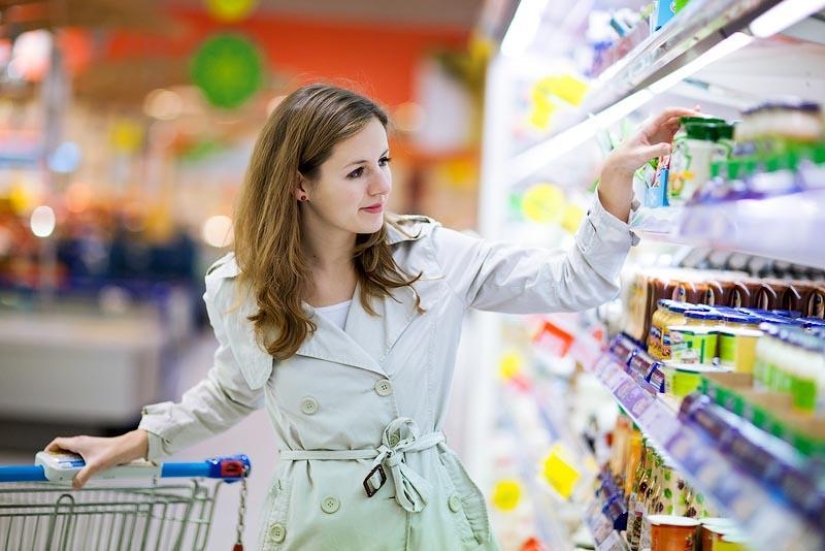
They have developed the formula "left-right".
Most supermarkets operate according to the so-called right-hand law, when the movement of visitors is organized counterclockwise. In this case, the buyer, moving through the store, always turns to the left, and his gaze most often falls on the middle of the wall to his right. It is in this place that the so — called golden shelves are located, and on them are either the most expensive goods or products with an expiring expiration date.
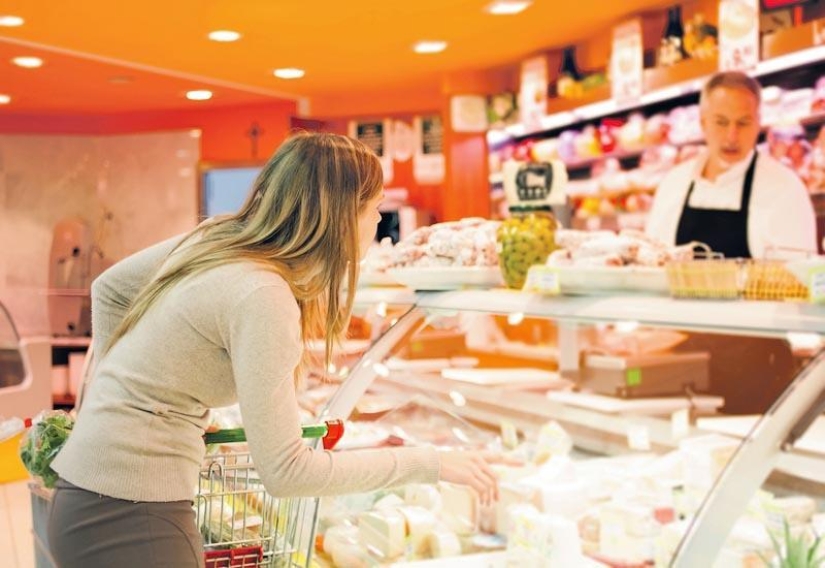
They confuse us with complicated prices.
We all know this old trick: 0.99 always seems much less than 1.0. Subconsciously, the penny grows to the gigantic size of savings, and the hand reaches for the coveted "freebie". In the same direction, the old prices are boldly crossed out, written often in a smaller font, and the new ones are highlighted. Your brain processes this information as a picture, not as an arithmetic problem. And as a result, you take an unnecessary thing to "save". The Council. Count it! Do not be lazy to deduct the new price from the old one. Sometimes the result will amaze you with its insignificance.
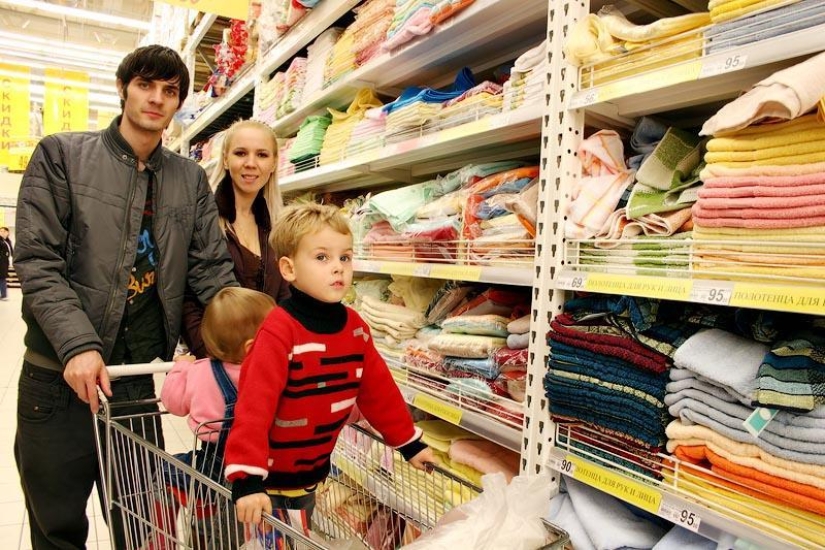
They use your children.
Perhaps this is inevitable. Each parent will have to go through a certain rite of passage: go to the store with the child and withstand all his whims, requests for the purchase of chocolates, new cereals, sweets… And it's good if it will only be tears, but real tantrums with lying on the floor and wild screams are not excluded. Yes, it is not easy for children to walk past colorful storefronts.

They hide cheaper goods from you.
Have you ever noticed that all the expensive goods are on the middle shelf of the counter, just at the height of your eyes? This is done so that you will see the most expensive product first. Then there is a calculation on psychology, so that you decide that the goods on the shelves that are higher or lower are of less quality (although this is usually not the case). Today, however, this place under the sun is being won by well-promoted brands, as their products bring great profits.
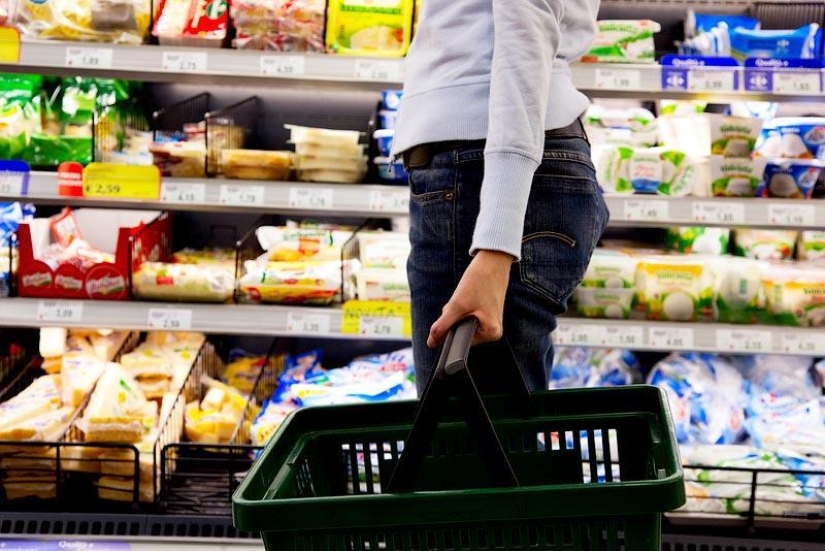
They offer their own pairs of products.
Everyone loves a couple. So it is in the supermarket. The so-called related products are always placed next to the main ones. Next to beer — chips or bags of dried fish, next to cookies-juices or carbonated drinks, next to shirts-ties, etc. All in order for you to buy more.
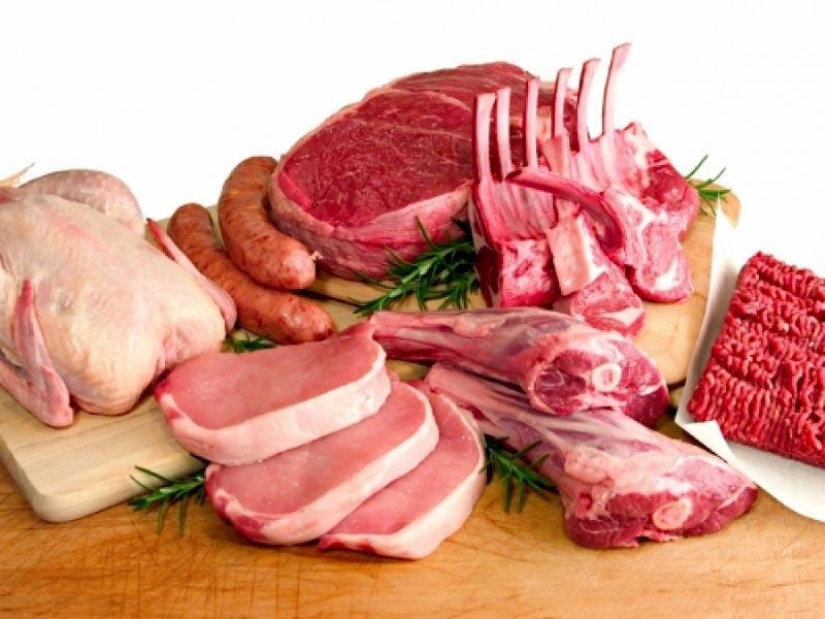
They sell meat and fish against the background of white walls.
Meat and fish are often sold on a white background to look fresher. And visual tricks like wooden shelves and nice lighting make people spend more.
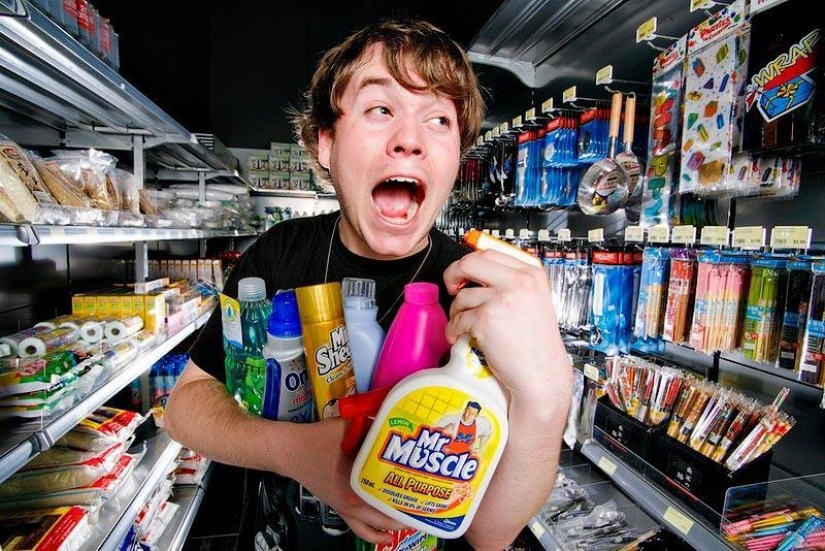
They appeal to your greed.
It seems that the flow of promotional events is simply inexhaustible. Buy one shampoo and get the second one as a gift. Superdelka! However, before you buy a shampoo, think about it: do you really need it or will it gather dust for three months? Buying two products at a lower price, you gain little, but the supermarket increases sales turnover. In addition, stale or expired goods are usually sold at discounted prices.
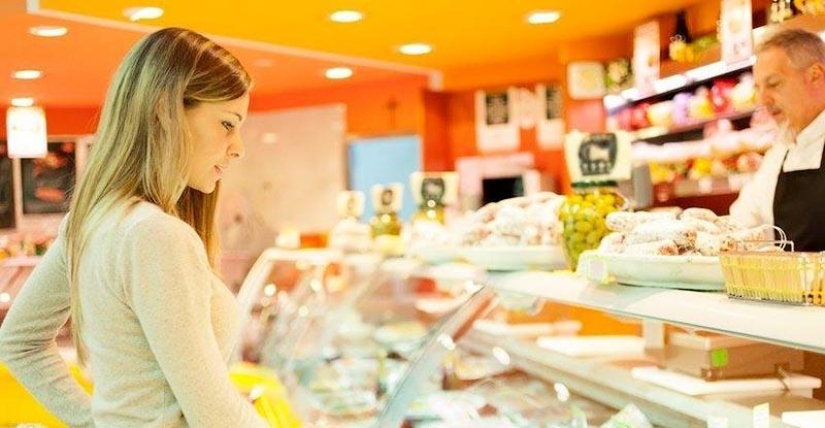
They paint the walls in warm colors so that you stay in the store longer.
Warm colors attract and make you contemplate. Studies have shown that people take a very long time to choose which fruit juice to buy, so these rows are painted red.
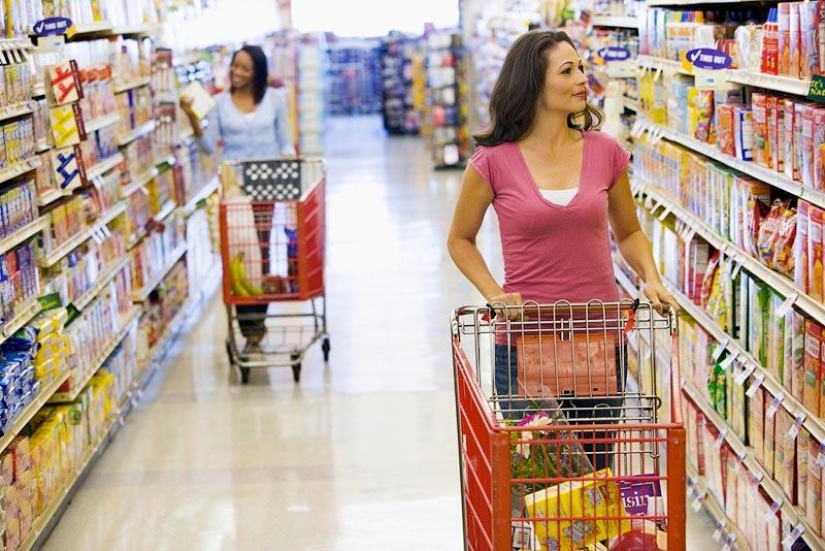
They put on music so that you spend more.
Music also plays an important role in trying to promote you for purchases. The next time you find yourself in a shopping center, close your eyes and listen. You will surely hear melodious music, which is also part of the strategy. To such music, we subconsciously slow down our pace, stop for a long time in front of the counters and look at the goods. Supermarkets spin easy hits that improve your mood in order to encourage you to make an impulse purchase that was not on your list.
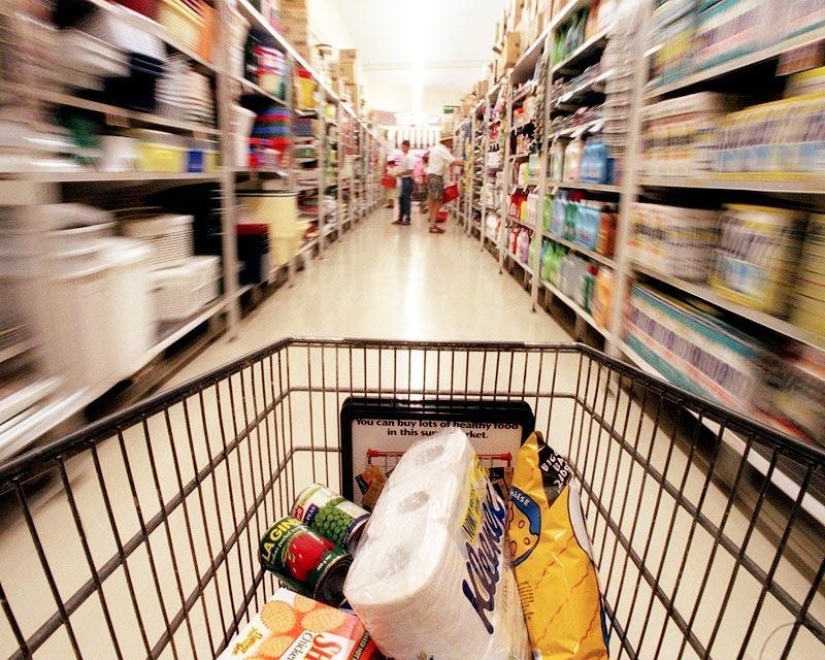
They have shelves with all sorts of small things at the checkout so that you can make spontaneous purchases.
At the checkout, you can notice even more goods that belong to the so-called category of spontaneous purchases. Candy bars, cheap magazines, chewing gum, mints and soda… The supermarket's last chance to make you spend money. Usually there are shelves with chocolates at the checkout, which you are likely to take as a reward for a long shopping trip. You will consider and choose such products in any case — after all, you need to pass the time in the queue somehow. And against the background of "big" purchases, the purchase of a chewing gum or a bar "on the track" for half a kopeck of money is simply not perceived by us as such.
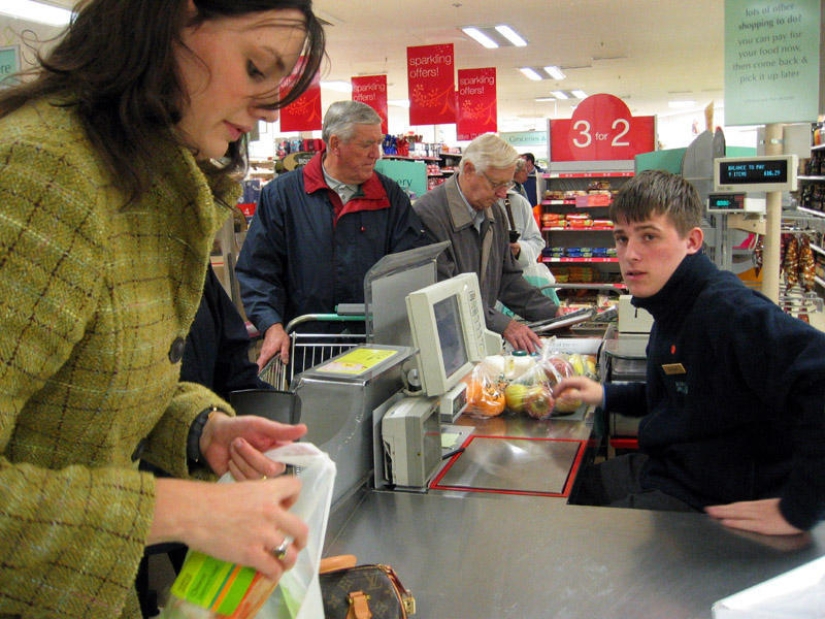
They bind you to themselves with the help of a discount.
Well, paying at the checkout, you will usually get a discount card. A small discount will tie you firmly to this supermarket. And a regular customer is a gold mine. After all, you will leave even more money here next time.
Keywords: Economy | Shop | Shopping | Supermarket | Consumption | Life hacks
Post News ArticleRecent articles

Treasures are all associated with pirates, robbers and the affairs of bygone days. You will be surprised, but countless treasures ...

Professional street photographer Eric Kim teaches his craft in workshops around the world. Next, you will find some tips from a ...
Related articles

Most women love to go shopping and shopping in boutiques. For some, shopping turns into a real addiction that you need to fight. ...

When we hear about Judaism and Jews, among many associations, the rejection of pork certainly pops up in our memory. This is not ...

If you're considering venturing out and launching your side hustle this year, some side hustle ideas might be more congenial to ...

An Englishman, a German and a Russian meet... No, this is not the beginning of another joke, but a rough description of a video ...